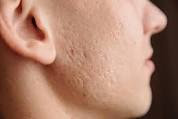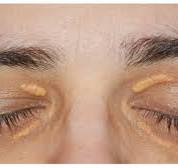Unveiling Clearer Skin: Effective Strategies to Combat Pigmentation
Introduction:
Pigmentation, characterized by patches of darker or lighter skin, can be a common concern for many individuals. Whether caused by sun exposure, hormonal changes, or skin conditions like melasma, pigmentation can affect one's confidence and self-esteem. Fortunately, there are various approaches to address pigmentation and achieve a more even, radiant complexion. In this comprehensive guide, we'll explore effective strategies and treatments to help you combat pigmentation and reveal clearer, more youthful-looking skin.
Understanding Pigmentation:
Pigmentation refers to the coloration of the skin, which is determined by the production of melanin, a pigment produced by melanocytes in the skin's epidermis. While melanin helps protect the skin from the harmful effects of UV radiation, overproduction or uneven distribution of melanin can lead to pigmentation issues such as:
1. **Hyperpigmentation**: Characterized by dark patches or spots on the skin, hyperpigmentation can be caused by sun exposure, hormonal changes (such as during pregnancy or oral contraceptive use), inflammation, or skin injuries.
2. **Hypopigmentation**: Hypopigmentation, on the other hand, refers to lighter patches or areas of reduced pigmentation on the skin. This can result from conditions like vitiligo, fungal infections, or certain medications.
Effective Strategies to Combat Pigmentation:
1. **Sun Protection**: Protecting your skin from the sun's harmful UV rays is essential for preventing and minimizing pigmentation issues. Apply a broad-spectrum sunscreen with an SPF of 30 or higher daily, even on cloudy days, and reapply every two hours when outdoors. Additionally, wear protective clothing, hats, and sunglasses to shield your skin from UV exposure.
2. **Topical Treatments**:
a. **Hydroquinone**: Hydroquinone is a common topical treatment for hyperpigmentation, as it inhibits melanin production in the skin. It is available over-the-counter in lower concentrations and by prescription in higher concentrations. However, long-term use of hydroquinone should be monitored by a dermatologist due to potential side effects.
b. **Retinoids**: Retinoids, such as retinol and tretinoin, can help improve pigmentation by promoting cell turnover and exfoliation. They also have the added benefit of stimulating collagen production, resulting in smoother, more radiant skin.
c. **Vitamin C**: Vitamin C is a potent antioxidant that can help brighten and even out skin tone by inhibiting melanin production and reducing oxidative stress. Look for serums or creams containing stabilized forms of vitamin C for optimal effectiveness.
d. **Alpha Hydroxy Acids (AHAs)**: AHAs like glycolic acid and lactic acid can help exfoliate the skin, fade pigmentation, and promote cell turnover. Incorporate AHAs into your skincare routine through cleansers, toners, or exfoliating treatments.
3. **Chemical Peels**:
Chemical peels are cosmetic treatments that use a chemical solution to exfoliate the outer layers of the skin, revealing smoother, more even-toned skin underneath. Superficial or medium-depth peels containing ingredients like glycolic acid, salicylic acid, or trichloroacetic acid (TCA) can help improve pigmentation and texture with minimal downtime.
4. **Laser Therapy**:
Laser therapy, such as laser resurfacing or intense pulsed light (IPL) therapy, can target pigmentation issues by delivering precise wavelengths of light energy to the skin. These treatments work by breaking up melanin deposits and stimulating collagen production, resulting in clearer, more uniform skin tone. Multiple sessions may be required for optimal results, and downtime can vary depending on the intensity of the treatment.
5. **Microneedling**:
Microneedling, also known as collagen induction therapy, involves using a device with fine needles to create microscopic injuries in the skin, stimulating collagen production and promoting cellular turnover. When combined with topical serums or growth factors, microneedling can help improve pigmentation, texture, and overall skin quality.
6. **Cosmetic Camouflage**:
For individuals with stubborn or widespread pigmentation issues, cosmetic camouflage products like color-correcting concealers or tinted moisturizers can provide temporary coverage and help even out skin tone. These products can be used alone or in conjunction with other treatments for enhanced results.
7. **Healthy Lifestyle Habits**:
Adopting healthy lifestyle habits can also support your skin's natural healing process and overall health, contributing to a more radiant complexion. Ensure you're getting an adequate amount of sleep, staying hydrated, eating a balanced diet rich in antioxidants and vitamins, and managing stress levels effectively.
Conclusion:
Combatting pigmentation requires a multifaceted approach that addresses both the underlying causes and visible symptoms. By incorporating sun protection, topical treatments, professional procedures, and healthy lifestyle habits into your skincare routine, you can effectively reduce pigmentation and achieve a clearer, more radiant complexion. Consult with a dermatologist or skincare professional to develop a personalized treatment plan tailored to your skin type, concerns, and goals. With patience, consistency, and the right strategies, you can unveil smoother, more youthful-looking skin and regain your confidence.
Call now
on our Mobile 8669086098 to book an appointment
Kindly visit our website Derma Solutions to know more.




Comments
Post a Comment